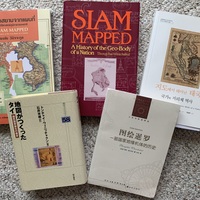
Grace Roldan
Related Authors
Andreas Umland
National University of "Kyiv-Mohyla Academy"
Naim Kapucu
University of Central Florida
danah boyd
Microsoft Research
Benjamin Isakhan
Deakin University
David Seamon
Kansas State University
Armando Marques-Guedes
UNL - New University of Lisbon
Noe Cornago
University of the Basque Country, Euskal Herriko Unibertsitatea
Simon Springer
The University of Newcastle
Thongchai Winichakul ธงชัย วินิจจะกูล
University of Wisconsin-Madison
Mauro Grondona
University of Genova
InterestsView All (12)










Uploads
Papers by Grace Roldan
approach to crafting policies and designing programs for the poor to address the issue of
sustainability of government-initiated livelihood programs. A discussion is made on the
evolution of the BoP concept, the different dimensions of value networks, and how they are
applied to the poverty reduction program of the Aquino administration, specifically, the
Sustainable Livelihood Program. The paper asserts that using a market-based, development
strategy is necessary for the poor to raise their real incomes. This involves creating innovative
partnerships with BoP stakeholders which is an integral part in fostering participatory and
sustainable approaches to development and poverty alleviation among the marginalized.
Books by Grace Roldan
communication technology (ICT) in disseminating information to the public, particularly in creating awareness to address the challenges of climate change in the region. The Internet, social media, and mobile technology are being used by government agencies and local government units for disaster preparedness and mitigation. Government websites are created to transmit relevant data for public use concerning climate change and disaster risk reduction and management. This manifests the values of integrity, accountability, and transparency which are marks of good governance and effective public administration.
The paper examines how social media and ICT serve as tools in addressing climate change issues especially in the preventive and remedial aspects of disaster management. An examination of the national and local government levels’ policy framework on disaster risk reduction and management shall first be tackled using the Philippines as a case. Emphasis is on how ICT and social media help address community needs especially the vulnerable sectors in society during times of disaster.
approach to crafting policies and designing programs for the poor to address the issue of
sustainability of government-initiated livelihood programs. A discussion is made on the
evolution of the BoP concept, the different dimensions of value networks, and how they are
applied to the poverty reduction program of the Aquino administration, specifically, the
Sustainable Livelihood Program. The paper asserts that using a market-based, development
strategy is necessary for the poor to raise their real incomes. This involves creating innovative
partnerships with BoP stakeholders which is an integral part in fostering participatory and
sustainable approaches to development and poverty alleviation among the marginalized.
communication technology (ICT) in disseminating information to the public, particularly in creating awareness to address the challenges of climate change in the region. The Internet, social media, and mobile technology are being used by government agencies and local government units for disaster preparedness and mitigation. Government websites are created to transmit relevant data for public use concerning climate change and disaster risk reduction and management. This manifests the values of integrity, accountability, and transparency which are marks of good governance and effective public administration.
The paper examines how social media and ICT serve as tools in addressing climate change issues especially in the preventive and remedial aspects of disaster management. An examination of the national and local government levels’ policy framework on disaster risk reduction and management shall first be tackled using the Philippines as a case. Emphasis is on how ICT and social media help address community needs especially the vulnerable sectors in society during times of disaster.